Wherefore art thou, media - The Lagrange Point Vol. I, Iss. 1.

Welcome to the first issue of The Lagrange Point! If you aren't familiar with this budding e-newsletter, you can find out more in this post here.
In This Issue
- Distant Early Warnings
- "Someone cooked here" - two different cooking-themed games?
- Crafter's Corner
- "Rivet Wars - the Ruska faction"
- Rantables
- "Media cannot stand alone"
- And Lastly, A Word
- "From ritualistic death to collectivist life - Godzilla Minus One"
Distant Early Warnings
Upcoming releases and events of Canadian geek things
Someone cooked here. Well, actually, two someones. Apparently, cooking games are in right now, and we've got two awesome-looking ones coming soon from Canadian creators.
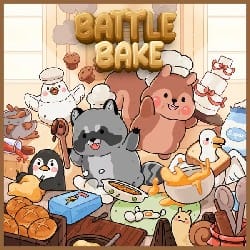
First up is Battle Bake, a competitive baking-themed board game with absolutely adorable characters by a pair of developers out of Calgary, AB. The game has been funded on Kickstarter, and its campaign wraps on July 13, 8:50am PST. If the baking and cutesy animals, designed by Argentinian artist Agustina Yovino, appeal to you, it might be worth getting the Kickstarter-exclusive edition, which includes additional characters and desserts.
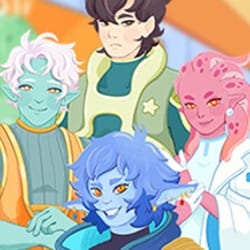
Milky Way Diner
Then we have Love at the Milky Way Diner, a sci-fi cooking and dating sim by Vancouver-based Clumsy Cat Studio. Another Kickstarter success, this campaign wraps on July 10, 9am PST. Dev couple Emanuelle (Ellie) Heikens and Lucky Kim's debut title has a demo up on Itch.io and Steam, and looks to be a very wholesome, LGBT-friendly kind of dating experience.

Cover Preview
In the world of comics, Canadian writer Chip Zdarsky's run of Batman continues, with issue 150 hitting store shelves just last week. I mainly know Zdarsky through his acclaimed Sex Criminals, but glancing at the extra-size Batman issue, it looks like he kept his style of internal monologuing, with a flashback to Bruce Wayne buying a gun immediately upon turning 18 and inheriting his family's wealth. What causes the dark knight to spurn these weapons? You'll have to read it to find out.

Lastly, if you're in the Toronto area from July 13 to 14 you might want to check out Anime Fiesta's Gakuensai event in North York. Located at Suon Academy near Sheridan Mall, the event promises a maid cafe, tea tasting, artist alley, haunted house, workshops and more. A weekend pass is $25, single-day tickets are $15, and children under 5 get in free. It's a pretty affordable little anime event!
Crafter's Corner
Rivet Wars - The Ruska Faction
RIVET WARS!
If that name means nothing to you, I can't blame you. The weirdly adorable chibi-style alt-history dieselpunk board game suffered from a serious lack of marketing support and awareness in its first iteration. I only stumbled upon it by chance, but I fell in love immediately with the art style and the miniatures (roughly 28mm scale).
I loved it so much, in fact, that when it first was on the brink of collapse, and creator Ted Terranova turned to print-on-demand miniature company Shapeways to try to salvage his designs for the next planned faction, the Ruska, I jumped on ordering them despite the obscene costs.
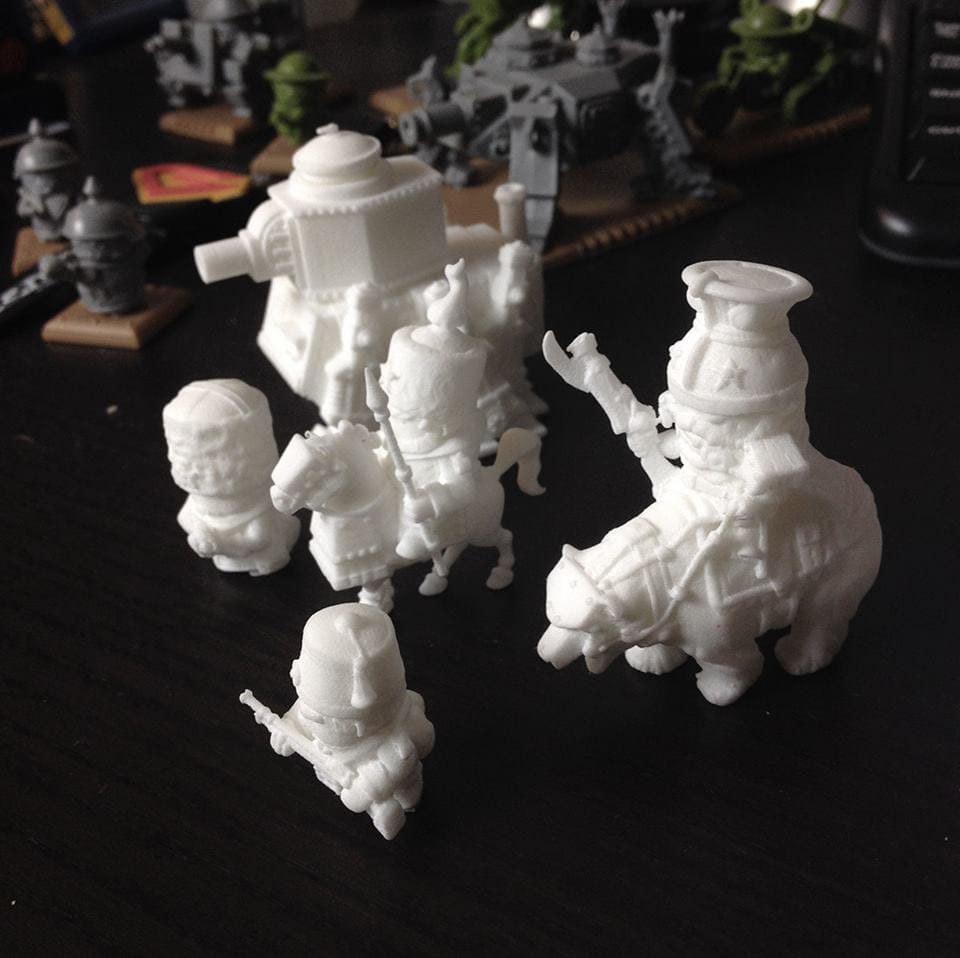
As you can see from the above image showing test prints of the minis (plus one never-released Ottoman figure, at bottom), they came as this pretty rough white plastic, which wasn't super detailed, and had no bases. They were also only available for a limited time, as after the game was revived as "Rivet Wars Reloaded," they ditched the Ruska and Ottoman factions in favour of an apolitical faction, the Nemoans, which have more of a Jules Verne "20,000 Leagues Under the Sea" aesthetic.
Yes, it seems Rivet Wars has decided the "alternate reality WW1" theme was perhaps doomed to controversy with the whole Russia actually invading Crimea and Ukraine thing. But dangit...I do love these little figures. And I might just have the only painted, and properly based (by cannibalizing extra Rivet Wars miniatures I had on hand), Ruska army in existence as a result.
Here's my progress so far on painting up my little Ruska group.
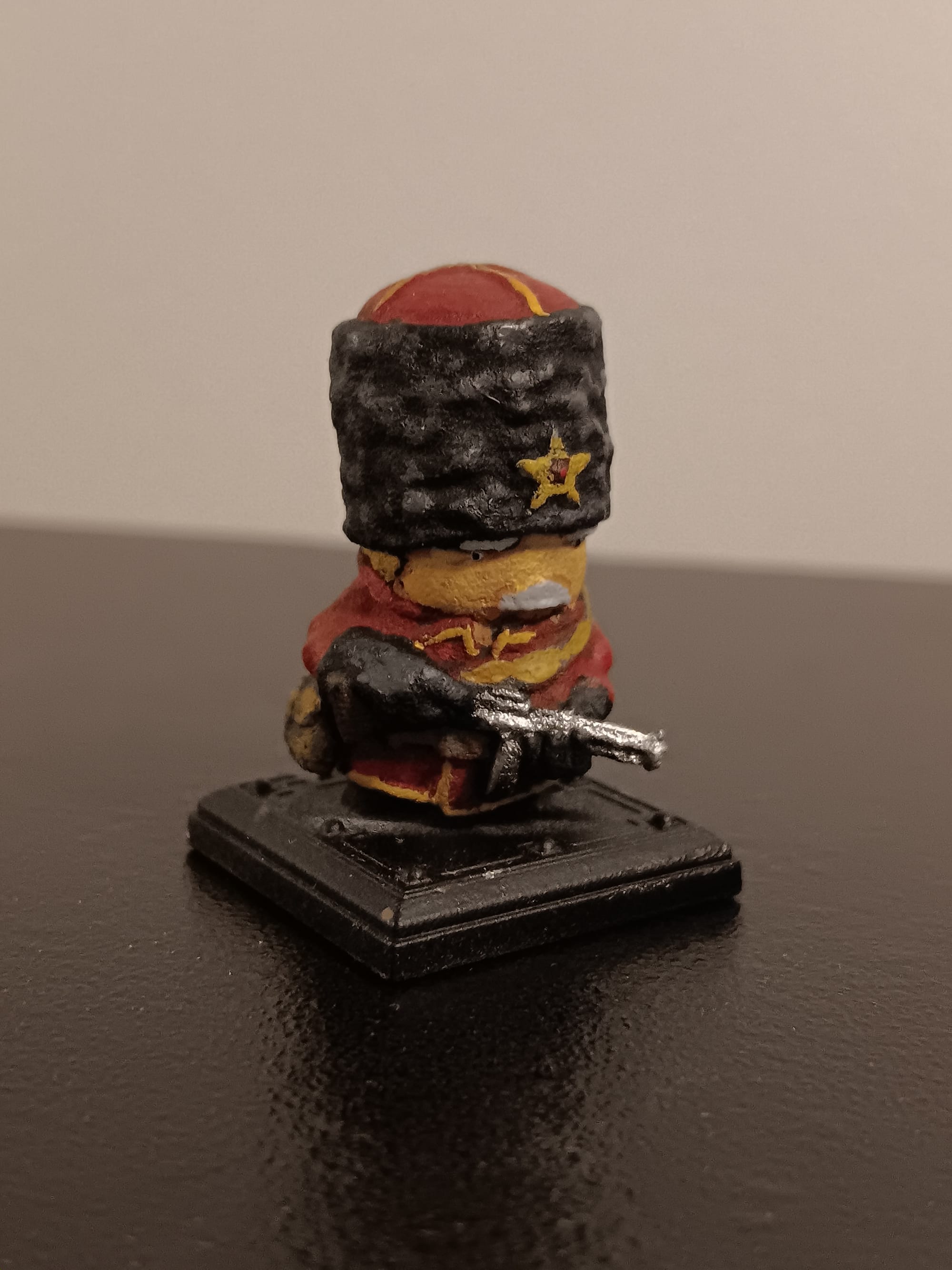
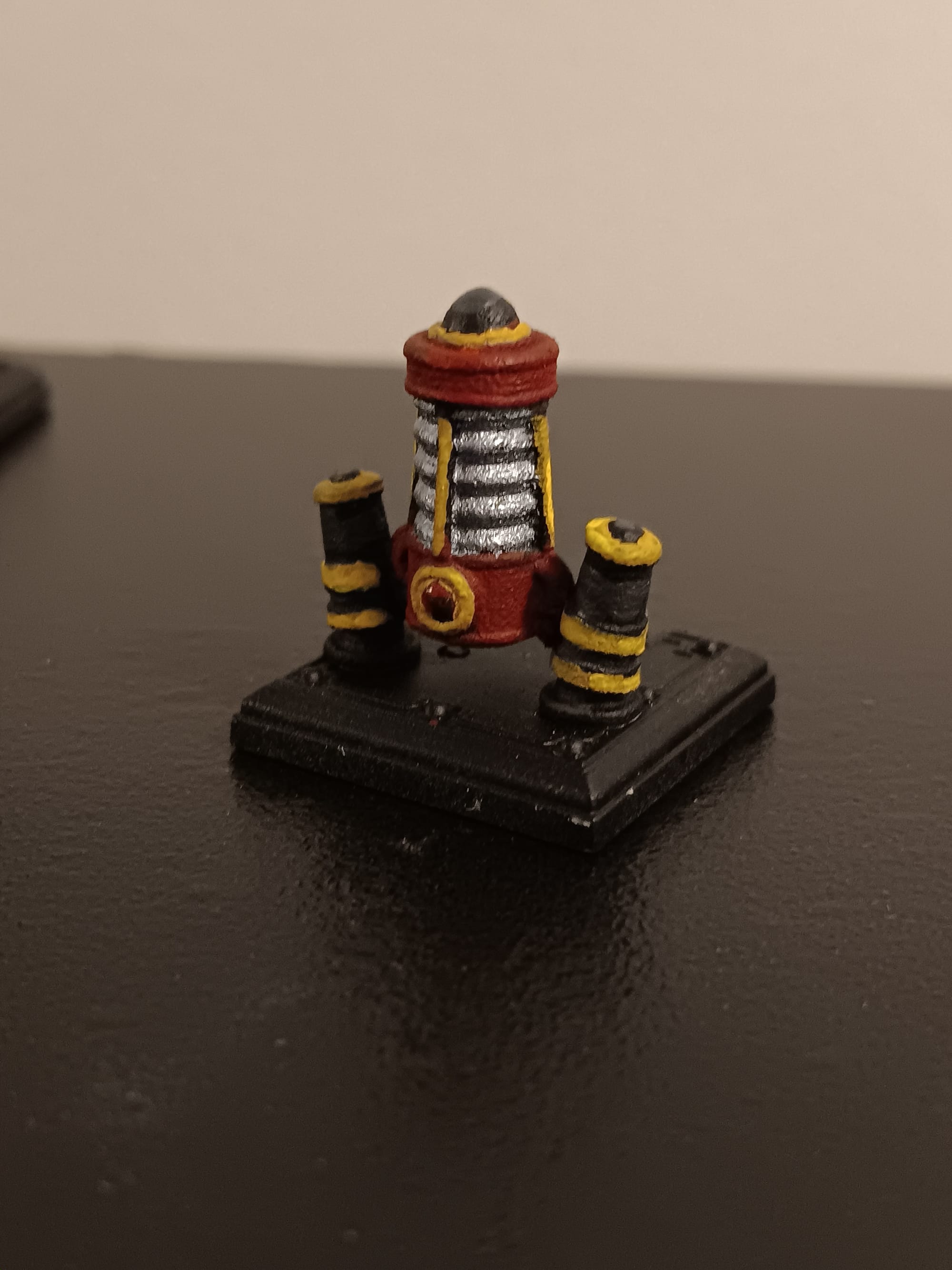
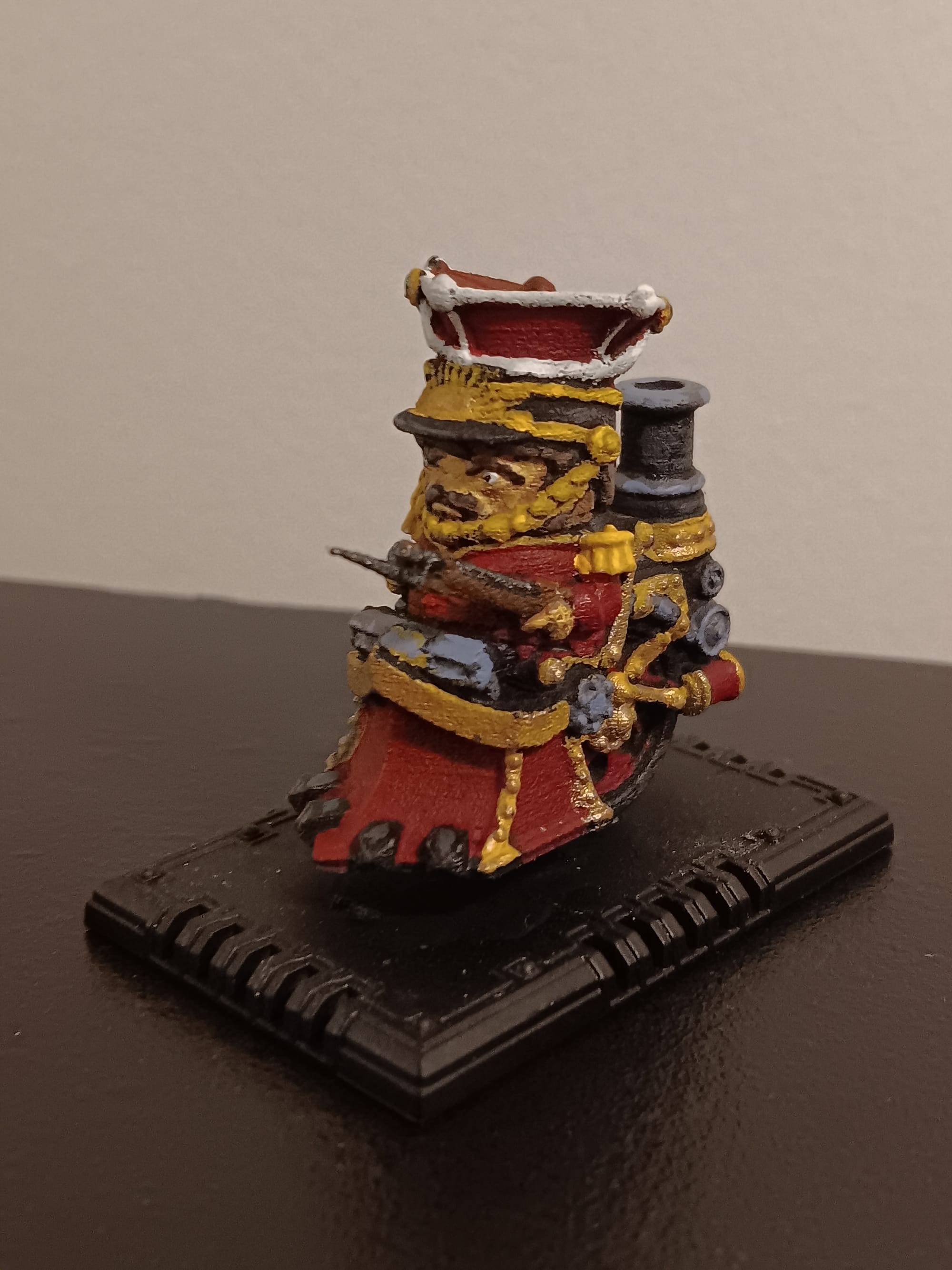
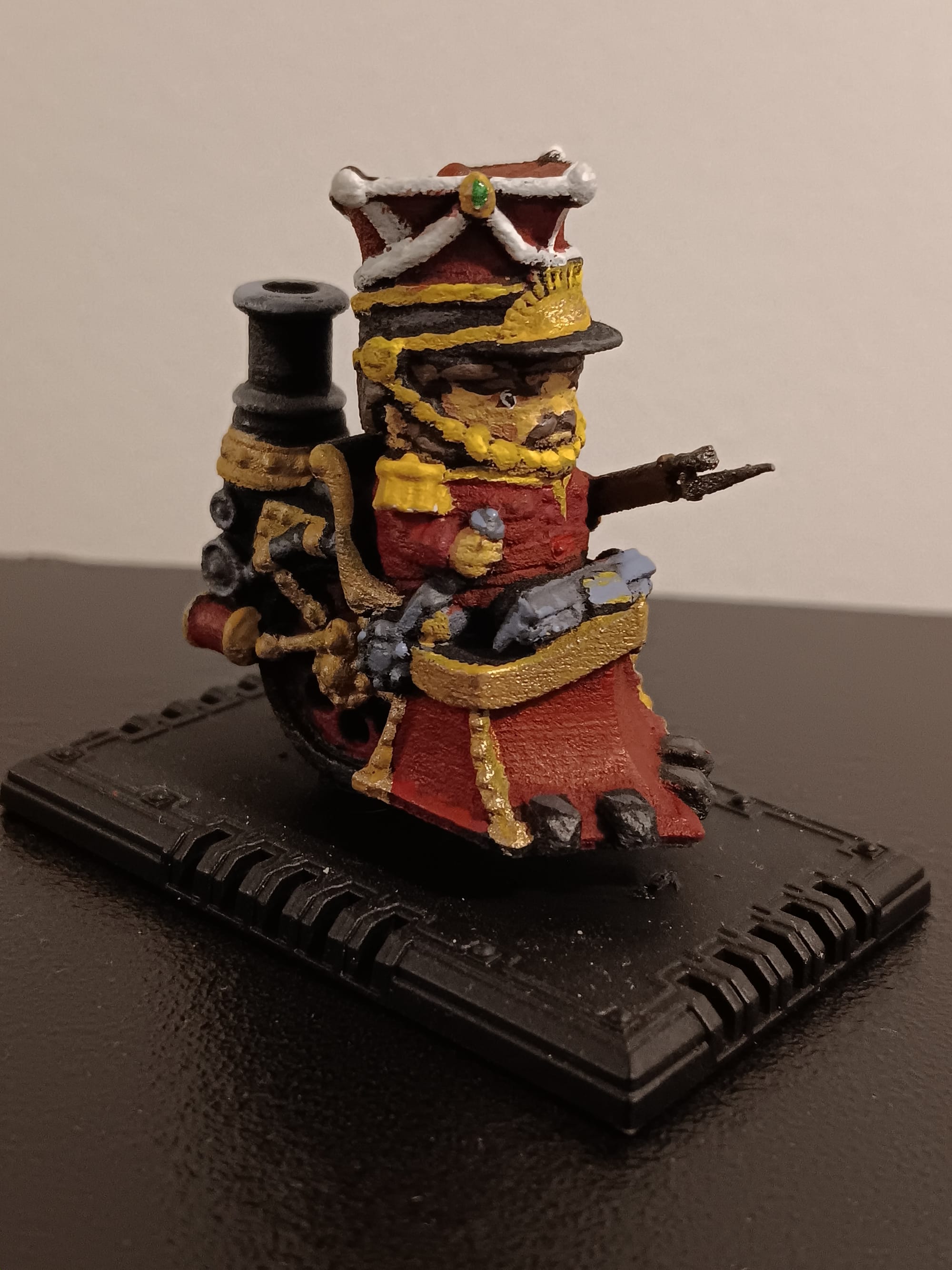
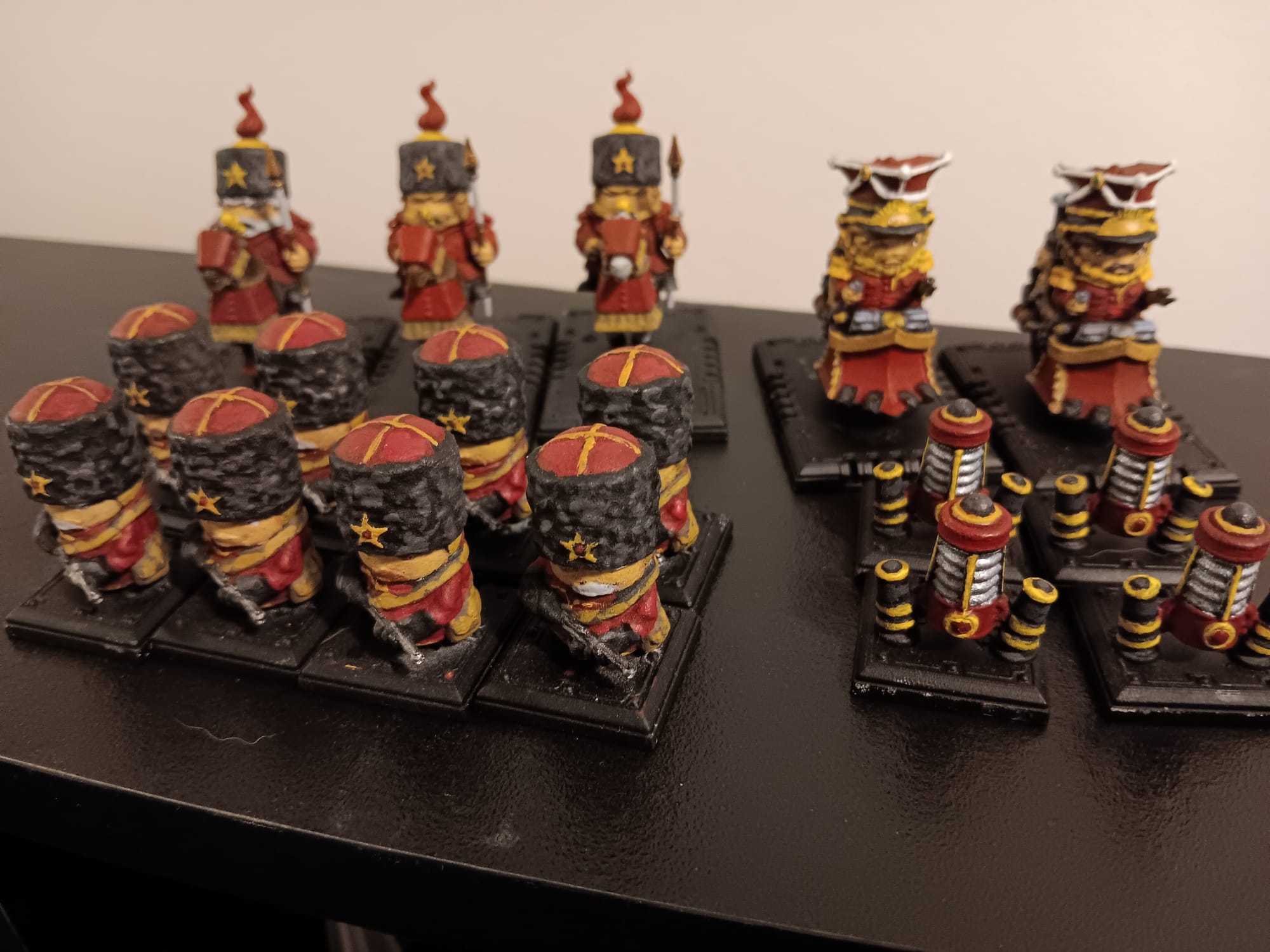
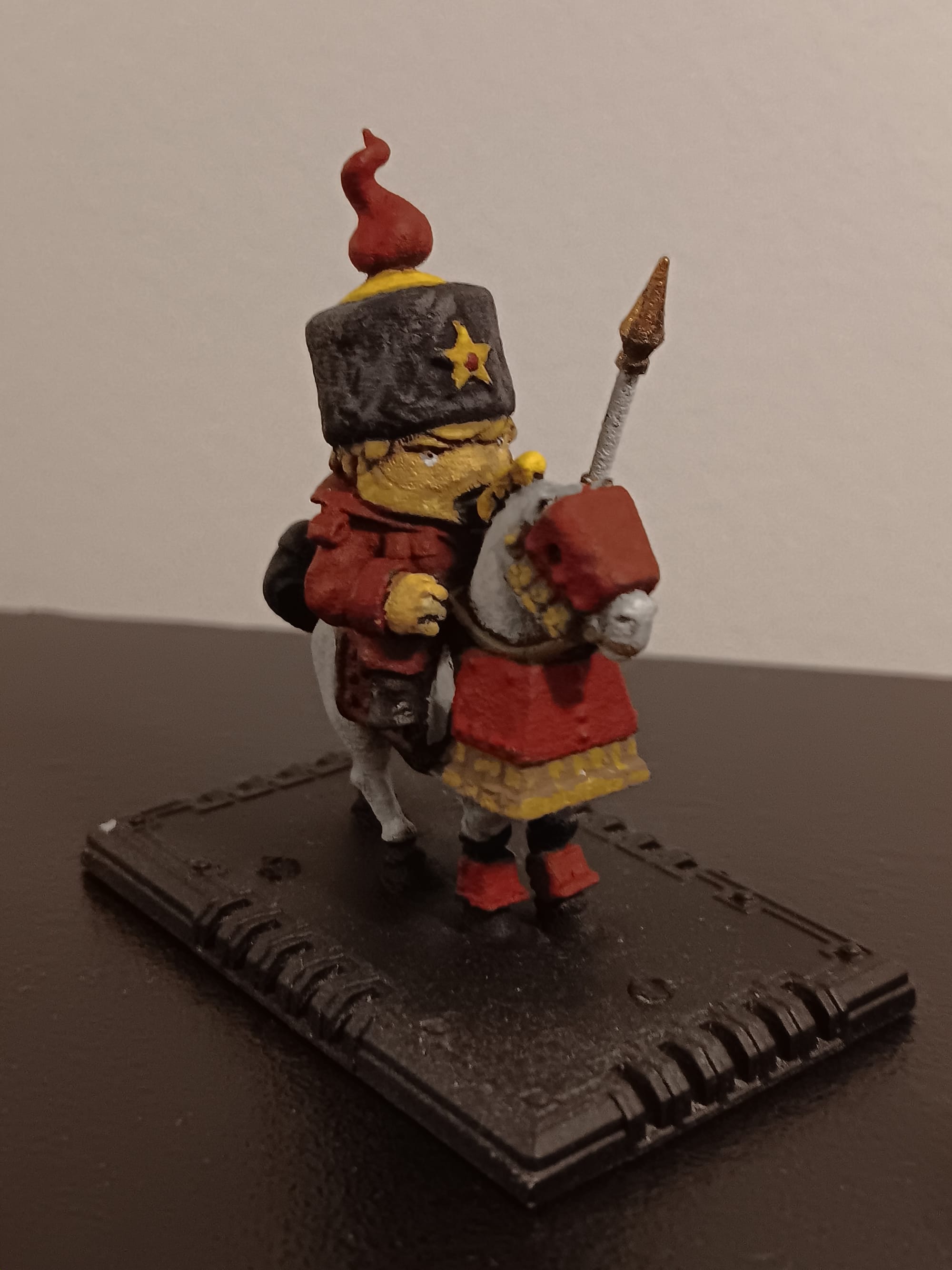
The main group still needs to have their bases properly finished, and the hero miniatures and the tank I am working on now. Those will be up next week!
Despite the mad print-on-demand costs from Shapeways, I was equally mad about Rivet Wars, and I regret nothing picking these guys up. I only wish I could have also had some fez boys with the Ottomans, which never got released at all.
Rantables
Media cannot stand alone
Just under a month ago, I received an email.
"Goodbye from Dicebreaker," it read in part. That ominous finality made me open it immediately. Sure enough, my worst fears were confirmed. The editor, Matt Jarvis, had been let go, along with dozens of other employees of Gamer Network - the umbrella group that operated such outlets as Eurogamer, Rock, Paper, Shotgun and, of course, Dicebreaker, which I'd written for a handful of times.
The network had been bought up from Reedpop by IGN, the monolithic titan that is to gaming news as Disney is to film, forever acquiring, gutting, and increasingly monopolizing its stranglehold on its industry. The language used by Jarvis and other Gamer Network staff was that they had "been made redundant," which undoubtedly came from their new owners. It was a blunt assessment of the larger philosophy behind IGN's mentality. Why let there be many voices in news, when you can simply buy your competition, then eliminate them? It's all the same news, right?
Of course, we know it's not. Media ecosystems are at their healthiest when there is a diversity of coverage, the better to service the more obscure and underserved corners of the world. In the broader media landscape, the phenomenon of corporate centralization and monopolization has meant the rapid destruction of local news, with outlets bought up first in rural areas and now, increasingly, even in larger urban centres, then eliminated, their meagre assets sold off to make a quick buck for an investment firm and faceless millionaires.
The situation is at least partially one of media's own making. By focusing on a primary revenue stream derived from advertising sales and corporate sponsorship, media exposed itself to the vulnerability of being beholden to private enterprise. That untenable position has now left it increasingly sensationalizing, or seeking banal clickbait in the interests of maximizing algorithmic sales revenues. It also meant that when those corporate sponsors began to focus on how to do things as cheaply as possible, they latched on to ways to eliminate labour costs altogether, including via AI writing.

It's becoming a tragically familiar refrain. Recent layoffs at Vox Media have badly shaken its subsidiaries, like Polygon. CTV eliminated thousands of jobs earlier this year. And at The Escapist Magazine, the ownership suddenly laid off longstanding editor Nick Calandra.
But in that final story there was a ray of hope. In a stunning display of worker solidarity, the frontline talent of The Escapist announced en masse that they would be leaving the magazine as well. That included the entire video team, most notably, Ben "Yahtzee" Croshaw, creator of renowned gaming critic series Zero Punctuation.
The team soon reformed independently as Second Wind, and pursued a successful crowdfunding campaign to finance their operations. Second Wind has been steadily pumping out content ever since.
People saw the talent that they loved. And they followed.
Can it really be so easy?
Well, certainly not for everyone. I am no Yahtzee Croshaw. I have no major following. And for more general interest news, crowdfunding may not be a possibility.
But what are the alternatives?
Government funding? That would expose media to the very real possibility of being controlled by government. It would, at minimum, raise legitimate questions as to the validity and ability of media to report on a government that they are, effectively, beholden to. This is how the CBC has largely been delegitimized in recent years by right-wing forces.
Ad sales or paid content? We've already talked at length about this. Corruptible, unreliable, and certain to attract demands for "efficiencies" that amount to poverty wages and minimal jobs.
Which leaves, essentially, people power. It wasn't so long ago we simply called this subscriptions, but in the face of new technology and new ways of interacting with media, we now see it in crowdfunding.
That is, ultimately, the option that The Lagrange Point will be striving for. To be transparent, this newsletter is and will remain totally free for at least one year, but may shift to a premium content model past that. This is because the platform it utilizes, Ghost, has generously offered journalists a free year on their premium plan. Afterwards, it will need to be funded.
I won't start passing the hat just yet. But my goal in these newsletters is to give you content that you truly can't get from machines or corporate media. My goal is to make this a product that you can feel confident about to the point where you may even want to financially support it, knowing that others may get it for free and therefore benefit.
It's going to be a challenging year. I'm running The Lagrange Point on my personal time, off the side of an imaginary desk because my studio apartment doesn't really have one.
But I'm up for it. And in time, I hope you will be, too.
And Lastly, a Word
From Ritualistic Death to Collectivist Life - Godzilla Minus One
This means choosing death whenever there is a choice between life and death. There is no other reasoning."
- Yamamoto Tsunetomo, Hagakure: The Book of the Samurai.
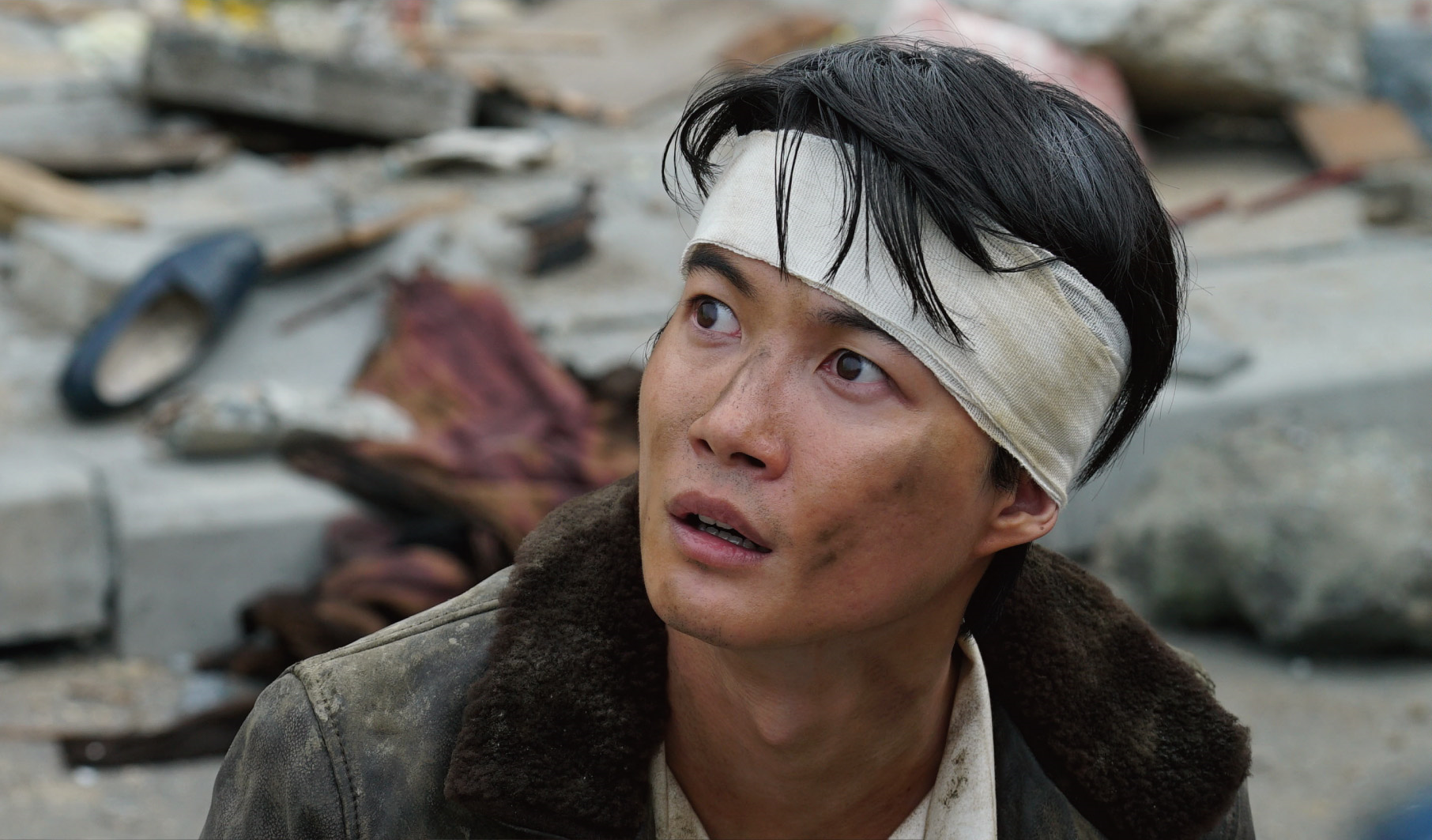
Godzilla: Minus One was released on streaming services, including Netflix, on June 1, 2024. It is very, very good. Possibly the best Godzilla movie of all time. I'm not the only one who thinks this. You should go watch it.
Immediately.
...did you watch it? Good. Now, let's talk about it.
SPOILERS HEREIN (click to expand)
A while ago, my 婆婆 (maternal Chinese grandmother) shared with me her story of fleeing the Japanese invasion and coming to Canada. She described walking the entire distance from Taishan to Hong Kong with her sister-in-law, and, at one point, encountering an occupying Japanese patrol.
To her horror, my 婆婆 realized that she had photos with her.
It would have been easy, in that moment, for the soldier confronting her to take her in. Photographs were a natural pretext for the Japanese occupiers to seize on as evidence of spying. As it was, the soldier simply confiscated them. A bit heartbroken over the loss of some of her only mementos of her life in China, my 婆婆 begged him to return them.
Miraculously, he gave most of them back.
My 婆婆 made it to Hong Kong, and escaped. Others were less fortunate. The Japanese occupation was brutal and horrifying, with atrocities like rape and murder against civilians and surrendered enemy combatants alike.
I won't ever know what that soldier who spared my 婆婆 was thinking. It's nice to think that maybe, in that moment, he saw a pair of young, vulnerable women and felt some humanity towards them.
And I should feel some humanity towards him, right?
Godzilla Minus One presents a challenging and interesting perspective for non-Japanese audiences. I read a critical American review that slammed it for being overly sympathetic towards Japanese kamikaze pilots, ignoring the broader picture of Japanese atrocities. That review concluded by demanding to know if people would be so comfortable with a movie that similarly sympathized with Nazi soldiers in the final days of World War 2.
I would argue there have been multiple films. Downfall. Jojo Rabbit. And now we have Godzilla Minus One, a movie that dares us to consider that along with the victims in places like Nanking or Panjiayu, there were also the victims in Japan itself.
In the leadup to World War 2, Japan was a nation undergoing a bastardization of what was once considered a noble philosophy: bushido. The ancient code of the samurai, pertinent and compelling in its feudal time, was transformed into a nightmarish caricature that demanded death for the state, in the form of the Emperor. It was now not just sensible to die in the service of the Empire — it was expected.
Those who did not were shamed, and, in some cases, treated as subhuman. This goes to explaining the way Japanese soldiers treated prisoners, but doesn't excuse it.
But in Godzilla Minus One, we see how Japan must move from a literal death-worshipping society to one of collectivist survival out of necessity to defeat an existential threat.
In one of the movie's most poignant scenes, "Doc," the weapons-tech who comes up with non-weapons-based plan to defeat Godzilla, talks about how Japan was a country that treated life far too cheaply, and how it must change for a better future.
This is borne out in the climactic final confrontation, where lead character Kōichi Shikishima, the former kamikaze pilot, bails out just in time to save his own life, and emerges victorious. In that moment, his death was quite literally not needed. And they won.
But through the movie, Shikishima has been tormented by lingering guilt that he should have died, spurred on by mechanic Tachibana and his neighbour, Sumiko. This is a distillation of the trauma inflicted by a regime built on instilling fetishization of death in service of the Empire. In this sense, Shikishima is every bit a victim of the Empire of Japan as anyone.
Godzilla Minus One derived its title, according to the director, from multiple metaphors. Chief among them was the idea that post-war Japan was, in the initial years, at a literal rock bottom: zero. The arrival of Godzilla sets that status even lower - at minus one. But in that state, of having the old, death-obsessed regime swept away, Japan found itself in a place where it could be reborn.
As a country that values life.
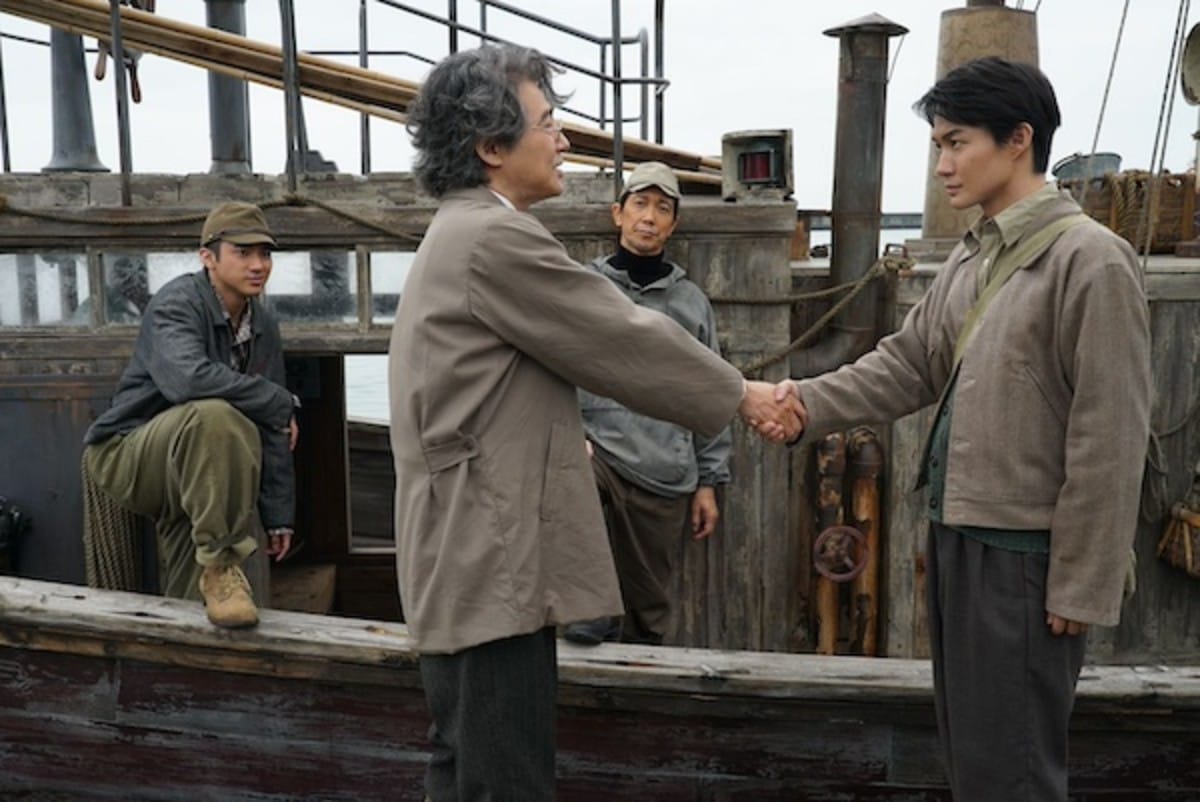
That wraps up the first issue of The Lagrange Point! If you enjoyed this issue, please consider subscribing, or, if you're already subscribed, sharing a link to the e-newsletter with a friend or family member!
I can't grow this e-newsletter alone. I'll need lots of mouths spreading lots of words about why people should read The Lagrange Point.
Until next Monday, thank you for reading!
-Tim



